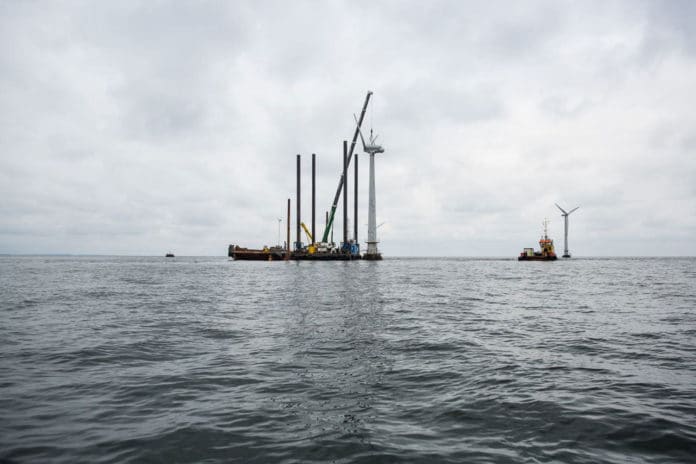Ørsted, a Danish multinational power company, has announced its new commitment to either reuse, recycle, or recover all of the wind turbine blades in its worldwide portfolio of onshore and offshore wind farms once they’re decommissioned. The commitment comes as part of the work towards achieving a carbon-neutral footprint by 2040.
Wind turbines don’t last forever, and they are difficult to recycle. This is because the blades are designed to be lightweight yet durable, making them challenging to break apart, with Orsted noting that most decommissioned blades are landfilled today.
As governments around the world attempt to ramp up their clean, renewable energy capacity, wind turbines will be deployed at an unprecedented pace, making it even more important to decommission the blades in a sustainable way. Ørsted will not use landfilling for decommissioned wind turbine blades but will instead temporarily store the blades.
Ørsted has so far constructed 7.5 GW of offshore wind and 1.7 GW of onshore wind. With Ørsted’s new strategic ambition of installing 30 GW of offshore wind and 17.5 GW of onshore energy production, including onshore wind, by 2030, Ørsted has a clear responsibility to help find solutions to the challenge of recycling blades.
“I hope that our commitment will inspire others which will help to bring scale to the market for recycling solutions of wind turbine blades, thereby accelerating the cost-out journey of the alternatives to landfilling, and help boost the already ongoing innovation in the wind energy supply chain on how to design to avoid waste,” says Mads Nipper, CEO of Ørsted.
In addition to Ørsted, many other companies involved in the sector have attempted to find solutions to the issue in recent years. Vestas aims to make wind turbine blades fully recyclable, thanks to its CETEC initiative. Then, there is the ZEBRA (Zero wastE Blade ReseArch) project by LM Wind Power that also aims to design and build the first 100% recyclable wind turbine.
Orsted, Vestas, and LM Wind Power – which is part of GE Renewable Energy – are also part of the DecomBlades consortium that seeks to investigate and develop solutions to recycle the composite material in wind turbine blades.
